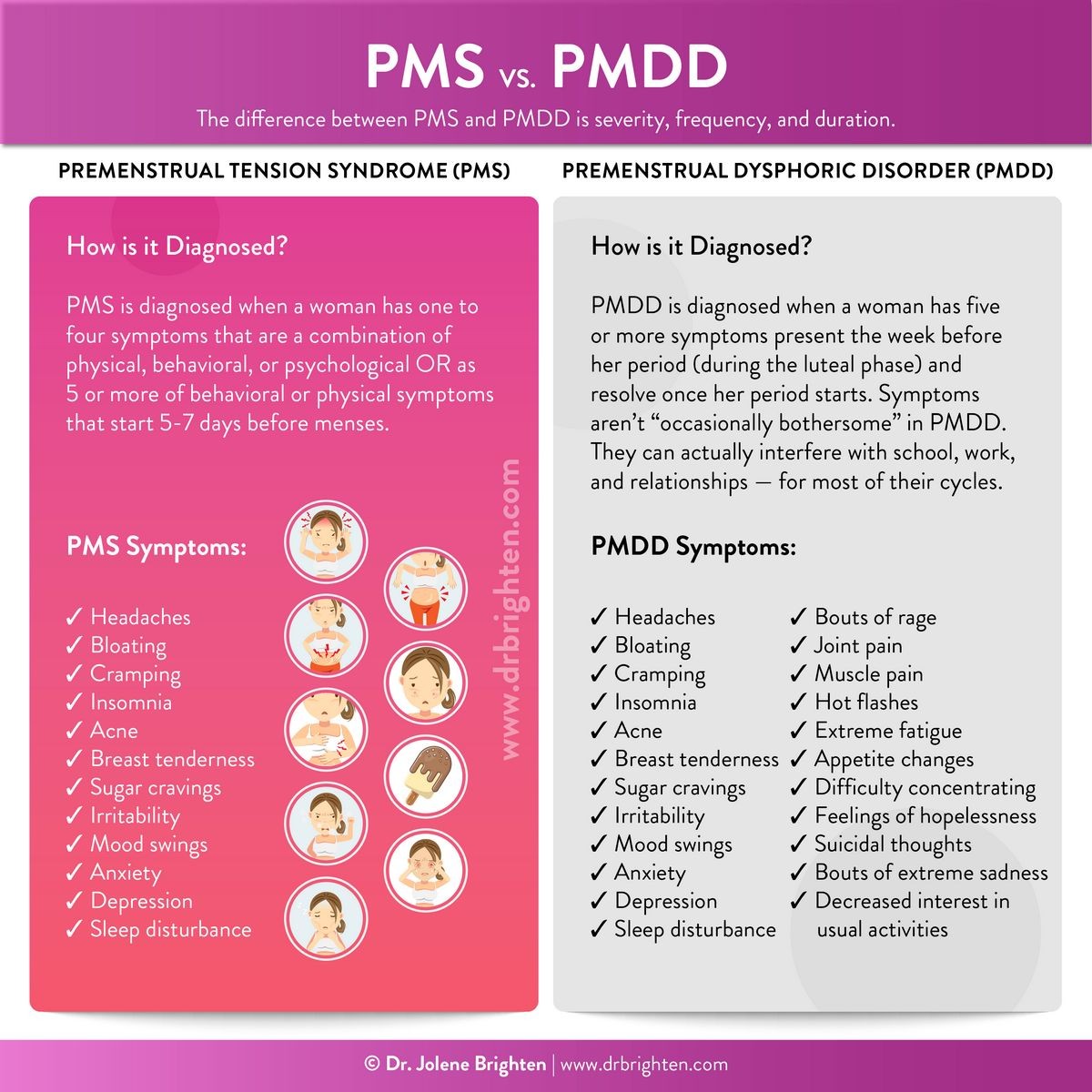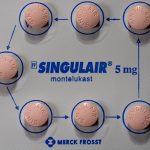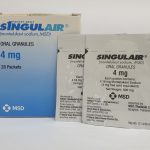
Contents
- 1 Premenstrual Dysphoric Disorder (PMDD)
- 1.0.1 What are the symptoms and signs of PMDD?
- 1.0.2 What causes PMDD?
- 1.0.3 When should I call a doctor about PMDD?
- 1.0.4 What vitamins and natural home remedies treat PMDD symptoms?
- 1.0.5 How is PMDD diagnosed?
- 1.0.6 Antidepressants (SSRIs) to treat PMDD symptoms
- 1.0.7 Oral contraceptives and GnRH agonists treat PMDD
- 1.0.8 What are the complications of PMDD?
- 1.0.9 What is the prognosis for PMDD?
- 1.0.10 Can PMDD be prevented?
- 1.0.11 From
Premenstrual Dysphoric Disorder (PMDD)
Symptoms of PMS include mood swings, bloating, breast tenderness, headaches, pain, food cravings, panic attack, fatigue, irritability, and trouble focusing.
PMDD is a severe form of PMS and is characterized by physical and psychological symptoms that occur in the second half of a woman’s menstrual cycle. Common physical symptoms include bloating, breast tenderness, headaches, joint pain, food cravings, mood swings, panic attacks, fatigue, mood changes, irritability, and trouble focusing. Anxiety and trouble sleeping may also occur. PMDD affects only 3%-8% of women and should be treated by a healthcare professional.
It is important to note that PMDD is not caused by the woman’s fault or weak personality but is a medical illness. The American College of Obstetricians and Gynecologists estimates that 85% of menstruating women experience at least one PMS symptom. PMDD requires the presence of five or more symptoms listed above for diagnosis.
Biologic, psychological, environmental, and social factors contribute to PMDD. Stress is associated with PMDD but is not a cause. PMDD can be managed with behavioral and pharmaceutical options.
PMDD was previously referred to as late luteal phase dysphoric disorder.
What are the symptoms and signs of PMDD?
PMDD symptoms are similar to PMS but more intense and debilitating. Common PMDD symptoms include fatigue, mood changes, abdominal bloating, breast tenderness, headache, irritability, depression, increased appetite, acne, oversensitivity to environmental stimuli, hot flashes, heart palpitations, easy crying, difficulty concentrating, dizziness, sleeplessness, forgetfulness, and gastrointestinal upset. Symptoms occur in the second half of the menstrual cycle and resolve after the menstrual period begins.
What causes PMDD?
PMS and PMDD result from the interaction of hormones produced by the ovaries with neurotransmitters in the brain. Although the precise cause is unknown, it is believed that the brain’s response to fluctuating hormone levels is abnormal in women with PMDD.
Personality traits and stress are not the cause of PMDD. Vitamin or nutritional deficiencies do not cause PMS or PMDD.
When should I call a doctor about PMDD?
Medical care should be sought for troubling physical or emotional symptoms associated with the menstrual cycle. Depressive symptoms associated with PMDD should be treated as a medical emergency.
What vitamins and natural home remedies treat PMDD symptoms?
Some studies have shown that chasteberry extract, calcium, vitamin B6, and vitamin E may reduce PMS/PMDD symptoms.
How is PMDD diagnosed?
PMDD must be differentiated from other physical and psychological conditions that produce similar symptoms. A symptom chart or calendar can help establish the diagnosis. Diagnosis requires the prospective documentation of symptoms during most menstrual cycles. The American Psychiatric Association provides formal diagnostic criteria for PMDD.
PMDD must be present for most menstrual cycles and interfere with daily activities. Symptoms cannot be a result of another condition.
Antidepressants (SSRIs) to treat PMDD symptoms
SSRI medications are effective in treating PMDD. They regulate serotonin levels in the brain. Up to 75% of women experience relief from symptoms with SSRI medications.
Oral contraceptives and GnRH agonists treat PMDD
Oral contraceptives and GnRH agonists can be used to suppress ovulation and regulate the menstrual cycle in the treatment of PMDD.
GnRH agonists can cause side effects due to lack of estrogen, which can be managed with small amounts of estrogen and progesterone.
What are the complications of PMDD?
PMDD significantly impacts quality of life and daily functioning. It can be associated with mood changes, depression, and suicidal thoughts and behavior.
What is the prognosis for PMDD?
Effective treatments are available for controlling PMDD symptoms.
Can PMDD be prevented?
There is no known way to prevent PMDD as it is caused by hormonal and neurotransmitter interactions in the brain.
By clicking "Submit," I agree to the MedicineNet Terms and Conditions and Privacy Policy. I also agree to receive emails from MedicineNet, and I understand that I may opt out of subscriptions at any time.
From
Women’s Health Resources
- What ADHD Looks Like in Women
- What Are Your Odds of Getting Pregnant?
Featured Centers
- What Are the Best PsA Treatments for You?
- Understanding Biologics
- 10 Things People With Depression Wish You Knew


